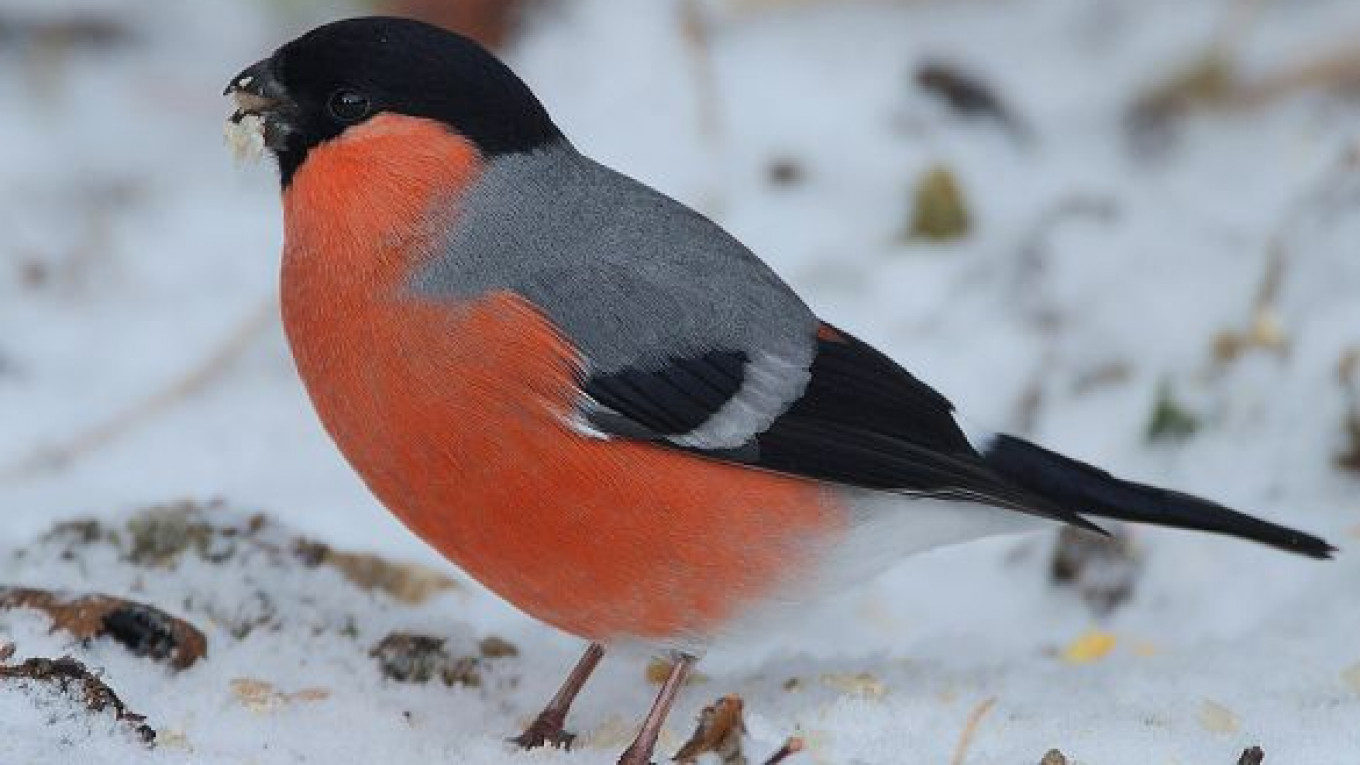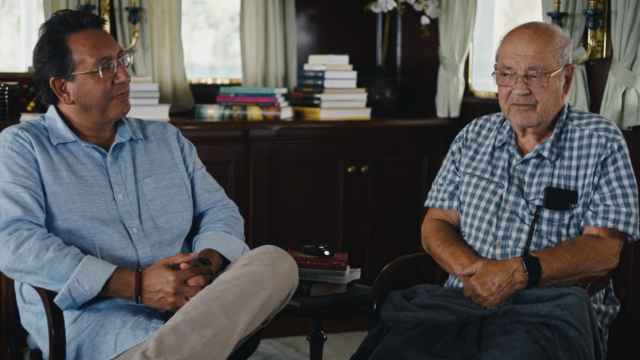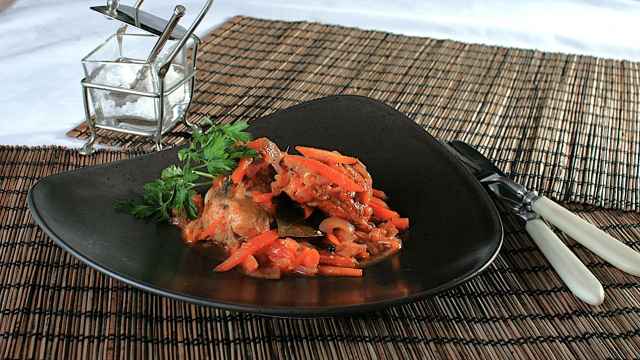With temperatures in Moscow predicted to plummet well below minus 20 degrees Celsius over the weekend, spare a thought for the city's bird population whose survival skills are being tested as the Russian winter starts to bite.
Most native birds are prepared for the low temperatures, with several layers of insulating down feathers to protect them from the elements, but up to 70 percent of small birds can perish during the long Russian winters because of decreased access to sources of unfrozen water and food.
Birds such as bullfinches, tits, sparrows and kinglets are most at risk of perishing according to Yelena Chernova, a bird specialist from the Russian Bird Conservation Union.
"Smaller birds have faster metabolisms and higher body temperatures, which need to be maintained by eating a lot and often. It gets very difficult for them when there isn't enough food," Chernova explained.
Simple measures can be taken by Muscovites to help feed these small birds and ensure their survival into the spring. Making or buying a simple bird feeder is the easiest and most effective way to help.
"There are many different types of bird feeders available. The most important thing is that it can't get wet or blown by the wind and that the bird can perch on it to feed," Chernova said.
"The simplest type of feeder can be made from a milk carton with little windows cut into the plastic and a piece of card stuck to the bottom, so the bird can easily perch.
"Roasted sunflower seeds are the ideal food for small birds. Dried fruit, wheat and dry white breadcrumbs are also suitable to put in feeders. Black bread should not be fed to birds as it upsets their stomachs," Chernova said.
Two areas where birds are in particular danger are in Losiny Ostrov and Kolomenskoye Park, the Komsomolskaya Pravda daily reported. The paper also wrote that unsalted pork fat could be a good treat for blue tits. "They will be delighted," it wrote.
Although members of the Russian Bird Conservation Union are urging people to help feed Moscow's bird population, they warn that those wishing to help are taking on a responsibility that must be upheld.
"If you do decide to feed the city's birds, then please keep in mind that they will start to rely on you. If their usual bird feeder is empty, they may not have enough strength to find another place to feed," Chernova warned.
A Message from The Moscow Times:
Dear readers,
We are facing unprecedented challenges. Russia's Prosecutor General's Office has designated The Moscow Times as an "undesirable" organization, criminalizing our work and putting our staff at risk of prosecution. This follows our earlier unjust labeling as a "foreign agent."
These actions are direct attempts to silence independent journalism in Russia. The authorities claim our work "discredits the decisions of the Russian leadership." We see things differently: we strive to provide accurate, unbiased reporting on Russia.
We, the journalists of The Moscow Times, refuse to be silenced. But to continue our work, we need your help.
Your support, no matter how small, makes a world of difference. If you can, please support us monthly starting from just $2. It's quick to set up, and every contribution makes a significant impact.
By supporting The Moscow Times, you're defending open, independent journalism in the face of repression. Thank you for standing with us.
Remind me later.






